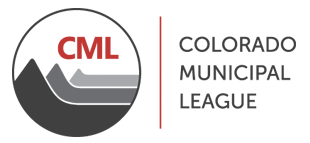Legal Corner: State noise limits apply to local amplified noise permits
In This Section
CML Newsletter
Sept. 16, 2025
By Robert Sheesley, CML general counsel
Municipalities regulate noise to ensure quality of life but often allow louder events by businesses and others to build communities through cultural, entertainment, athletic, and patriotic events. By CML’s count, at least 23 statutory municipalities with a population over 1,000 directly regulate noise and have some form of special permit or exception for authorized events. That number likely expands when the other statutory and home rule municipalities are considered.
A new decision from the Colorado Supreme Court in Hobbs v. City of Salida requires municipalities to reassess local noise regulation and how community events are conducted. Whether contained in specific noise permitting ordinances or other local ordinances (e.g., zoning, nuisance ordinances), the Hobbs decision may undermine longstanding practices and the viability of music venues, restaurants and bars, and festivals that build local economies and define local identities.
The Noise Abatement Act
Since 1971, the Noise Abatement Act (Act) has set statewide limits on noise levels based on zoning and time of day. See C.R.S. §§ 25-12-101 to -110. The Act permits local laws that are “no less restrictive.”
The Act is not a model of clarity — it limits “[e]very activity to which [the Act] is applicable” but then does not generally define its application by activity. Instead, the Act principally sets noise limits based on times of day and particular property classifications (e.g., residential, commercial, industrial). “Sound levels of noise” cannot radiate from a property line beyond 25 feet over certain decibel limits. In some limited cases, the Act defines standards for activities (e.g., railroads and snow-making) but never sets a limit or says that it covers outdoor entertainment.
Within this confusion, a 1987 amendment exempted “the use of property” by government and non-profits and “any of their lessees, licensees, or permittees” for qualifying purposes (“cultural, entertainment, athletic, or patriotic events” like concerts, festivals, and fireworks shows). C.R.S. § 25-12-103(11).
Hobbs v. City of Salida
The City of Salida, like many municipalities, viewed the exemption as allowing the city to grant amplified noise permits for activities that had no connection to the city or any property being used by the city. In granting permits, the city issued permits only after considering the local circumstances, including the nature and duration of the activity, its location, the impact on surrounding properties, and injuries to public health. The city also imposed limits to minimize adverse impacts.
The city used its authority to issue a permit for a downtown restaurant to hold concerts on an outdoor patio during the summer. Under the Act, the noise limit at night would have been 55 dBA, equivalent to a normal conversation or a running dishwasher (likely even less than the sound of the adjacent Arkansas River).
In a lawsuit by a resident who lived across the river, a railroad, a path, and a road from the restaurant, the Supreme Court held that the exemption did not broadly allow the city to issue permits to exceed state noise limits. Instead, there had to be some connection between the use of the property for a qualifying purpose by the government or a non-profit and the use by the so-called “subordinate entity” (the lessee, licensee, or permittee).
What does Hobbs mean?
The basic rule of Hobbs is that only a limited class of primary entities (government and non-profits) and purposes (cultural, entertainment, athletic, or patriotic events) are exempt from the Act under C.R.S. § 25-12-103(11). Their lessees, licensees, and permittees (subsidiary entities) only benefit when there is a connection between their use and the primary entity’s use of the property.
Hobbs does not answer the extent to which a government or non-profit must “use” the property. Presumably, ownership or control of property suffices (e.g., permitting an event in a public park or a concert at Coors Field). But Hobbs suggests that the primary entity must be using the property for qualifying purposes and the use by the subordinate entity must be associated with that use. Municipal sponsorship or involvement in an event may not be enough for the exemption to apply.
As a result of Hobbs’ strict interpretation, local permits (at least in statutory municipalities) allowing the permittee to exceed the Act’s noise levels are likely invalid if not associated with a government or non-profit use of land for a qualifying purpose. This primarily affects private businesses like restaurants, bars, and music venues. The limit could also affect events sponsored by a municipality or regularly enjoyed in a community that are operated from private property by a private actor (like a fireworks show).
Moving forward
A legislative fix may be needed to cure what’s wrong with the Act, as interpreted in Hobbs, to ensure that local governments can create appropriate environments for their communities. The Act’s presumption that noise “contribut[es] to an economic loss to the community” (C.R.S. § 25-12-101) is at odds with modern reality in many Colorado cities and towns. Outdoor events, even on private land, contribute significantly to local economies and provide exceptional benefits to residents.
In the meantime, municipalities should consider revisiting ordinances and permits that authorize amplified noise for consistency with the Act. Further consideration of nuisance and zoning ordinances may also be warranted.
This column is not intended and should not be taken as legal advice. Municipal officials are always encouraged to consult with their own attorneys.
